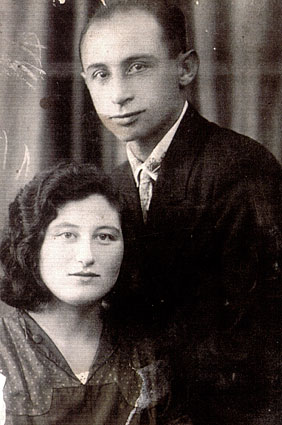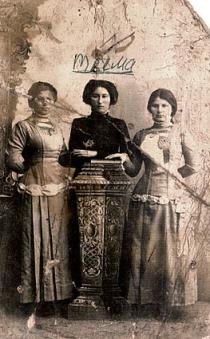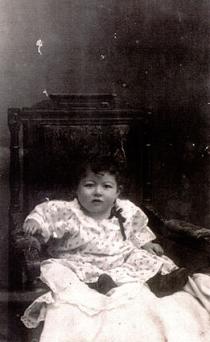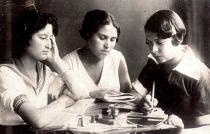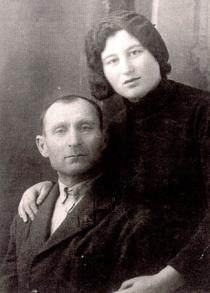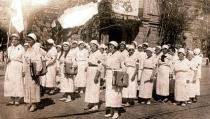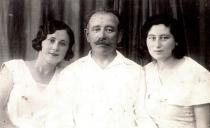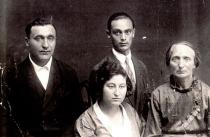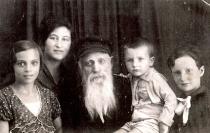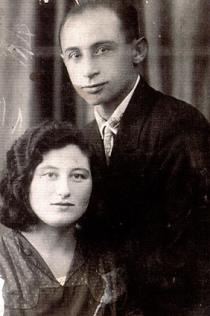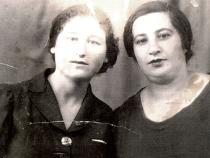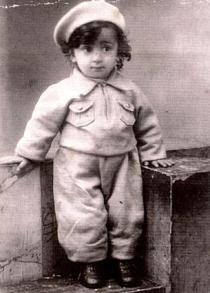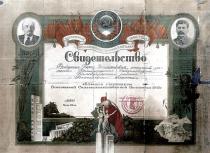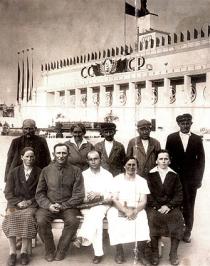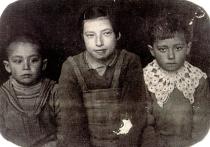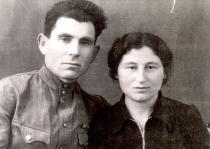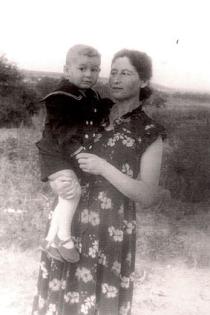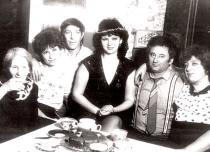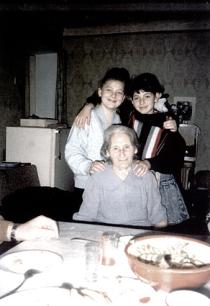I, Yelizaveta Zatkovetskaya, with my first husband Peretz Freidkin photographed in Kherson on 6 July 1937. I sent this photo to my father in Sagaydak signing it 'in the memory of lovely days in the south, friendship and love, Peretz and Yelizaveta'.
In 1935 I finished the Jewish Faculty of Kiev Pedagogical College in Odessa. This faculty trained teachers of the Jewish literature and language for Jewish schools. I lived in a hostel in Odessa. We celebrated all Soviet holidays, went to parades and festivals, but I also remembered the Jewish traditions. Being a Komsomol member, I couldn't openly celebrate holidays or go to the synagogue, but I tried to observe traditions quietly. I tried to do no hard work on Saturday and fasted on Yom Kippur without mentioning it to anyone. Of course, following the kashrut was out of the question since we were always hungry and ate whatever we could get.
In the late 1920s - early 1930s new Jewish settlements were established in the south of Ukraine with the help of AgroJoint. Some villages had names and some - Numbers: 16th, 17th, 23rd sites. AgroJoint helped poor Jews with moving to new locations and built houses and schools for them. There was also a need in Jewish teachers, and I received a job assignment to a 7-year school in the 17th site in Kherson region. I rented an apartment from the logistic manager of school. I made friends with doctor assistant Fira. We got along well and had lots of fun. We made a communal budget putting our salaries together spending it for food. We also shared clothes. Fira dated a zootechnician from the farm. Once we invited him to our home. That evening we made macaroni for dinner and the moment we served the table there was a knock on the door. There was Fira’s friend and an interesting young man with him. It was his friend, senior zootechnician. I liked the guy very much. We began to see each other and few months later he proposed to me. In late 1936 we got married. We just had a civil ceremony in a registry office. Traditional Jewish weddings were not practiced at that time. We were both Komsomol members and might be expelled from Komsomol or even fired from work. Besides, there was no synagogue in our village.
My husband Peretz Freidkin was born in 1910 in Kalinindorf, a Jewish colony in Kherson region. My husband's family was a traditional Jewish family. He studied in cheder and then finished a Jewish elementary school. He also finished the Agricultural College in Kherson and became a zootechnician. After the wedding we lived in a small room of a three-apartment house in the 17th site. Our co-tenants were few other newly wed couples. We had a common kitchen and 'comforts' in the yard. Then we moved to the Jewish colony of Seidemenucha where I got a job assignment from the regional department of education half a year later. My husband worked as a zootechnician there as well. In 1937 our son was born. I named him Mikhail, by the first letter of my mother's name. After our son was born we moved to my husband's parents in Kalinindorf. We had a good life together. My husband's parents had a nice big house and a garden. I worked at school. We hired a baby sitter for my son and my mother-in-law was helping me. She observed Jewish traditions. On Saturday our Ukrainian neighbor came to set the table for our family and feed our livestock. My mother-in-law made matzah and we celebrated Pesach. My husband was a zootechnician in the kolkhoz 'The way to communism'. It was a very rich Jewish kolkhoz, a 'millionaire', adjoining to Kalinindorf. By that time I had lost my job: the Jewish school was closed. Many teachers got training to become teachers of Russian, geography or history, but I couldn't afford any training having to take care of our son.
